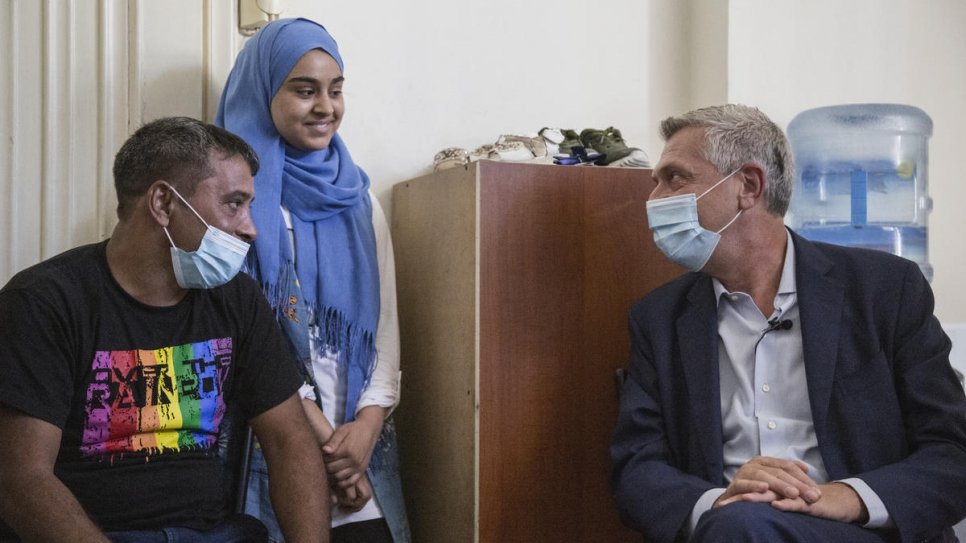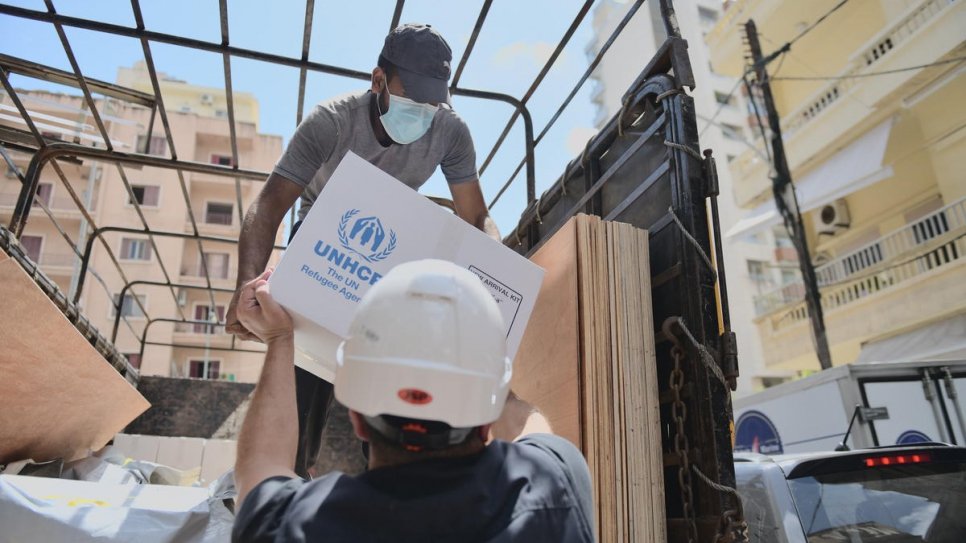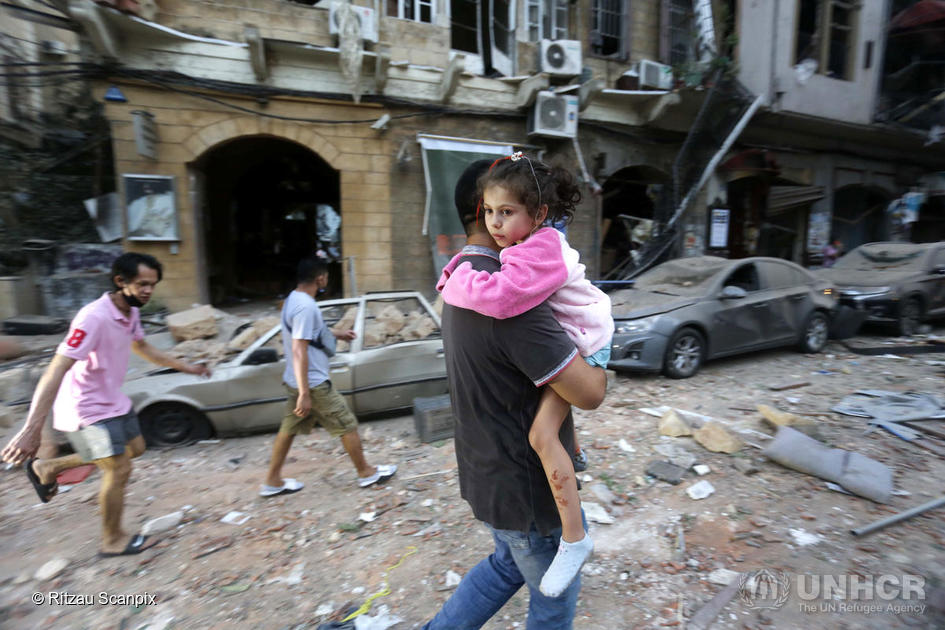When Shadi Shhadeh saw videos on his phone of a devastating explosion in Beirut on August 4, he felt a wave of empathy.
“I was shocked. It’s a city I know. I walked their streets,” said Shadi, who fled as a refugee from Syria and lived in Beirut before traveling to Switzerland in 2013.
Refugees in Beirut, which hosts 200,000 people displaced by wars and conflict, immediately joined local residents in the rescue and clean up of the city that has given them welcome and safety. Now Syrian refugees in the wider diaspora are also stepping up to help.
Shadi acted swiftly on his feelings, asking friends who are also refugees to make video messages in support of fundraising by UNHCR, the UN Refugee Agency, to assist those impacted by the explosion that killed at least 180, injured more than 6,500, and damaged or destroyed around 200,000 homes.
In doing so, he turned a stereotype about refugees on its head. Many people see refugees as people who need help. Shadi shows they can also be humanitarians whose instinct is to reach out and help others.
“As refugees, we know what it is to be without a home.”
Shadi was particularly concerned about people made homeless by the blast.
“As refugees, we know what it is to be without a home,” he said.
One friend, Firas, a Syrian refugee who has lived in France for the last two years, said in his video message that he felt the “agony and distress” of Beirut’s residents and encouraged others to donate to UNHCR along with him.
UNHCR is scaling up its response to all communities affected by the blast to provide immediate relief, shelter and protection support and last week High Commissioner Filippo Grandi is visiting the city.
UNHCR and its partners are providing emergency shelter materials to those most in need among an estimated 200,000 households and conducting psychological first aid and other urgent measures for those affected.
“We can tell the refugees that they are not alone.”
The fundraising also sends a message of solidarity.
“We can tell the refugees that you are not alone. Your pain is our pain … We (refugees) know these crises and today we stand with you,” he said. In typically modest fashion, he said his friends who had participated were the real heroes of the effort, rather than himself.
Shadi fled from Damascus 2011. Since then he has lived in Jordan, Egypt and Turkey, as well as in Beirut. He recently completed a degree in French literature, works with a medical relief organization and wants, eventually, to work with refugees.
“Yes, I am a refugee. At one time, I needed support. Today I can support someone else,” he said.
Share on Facebook Share on Twitter




